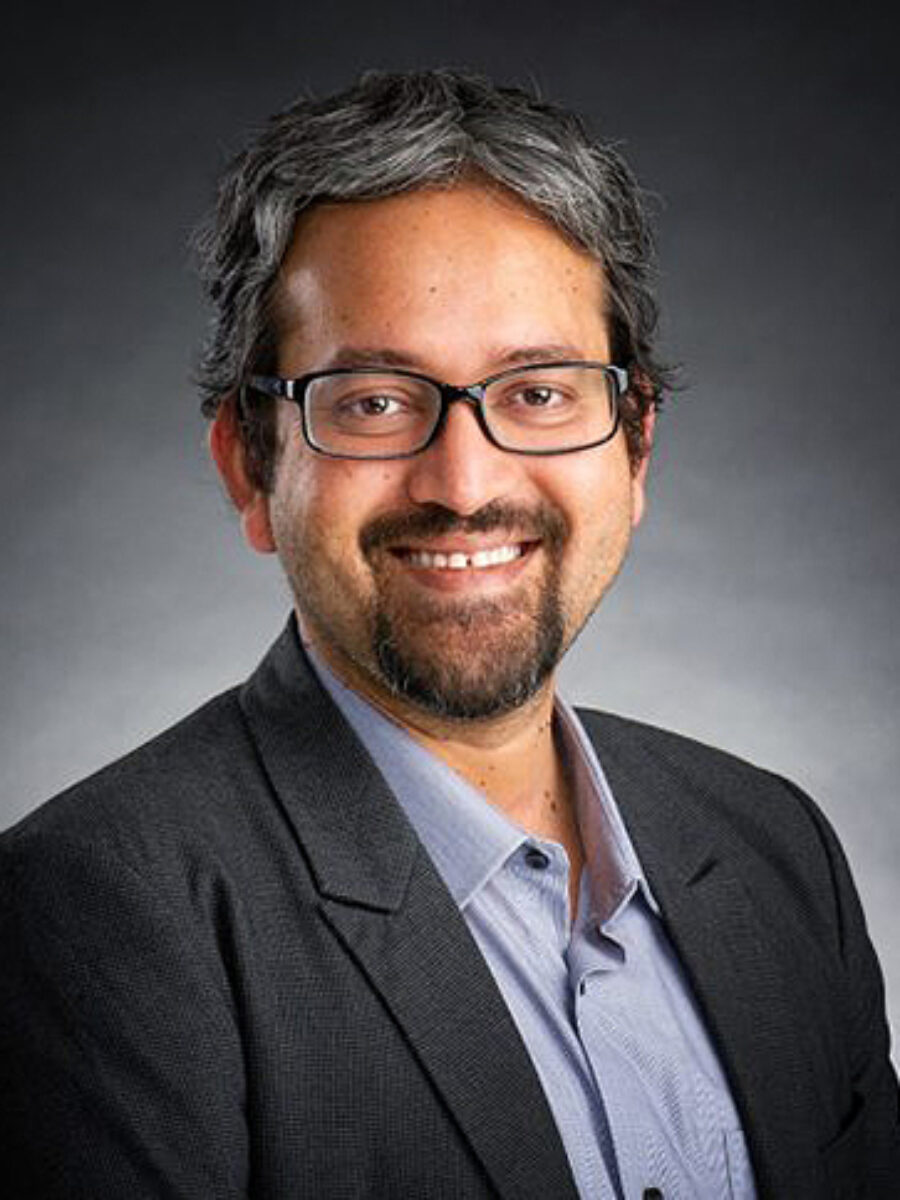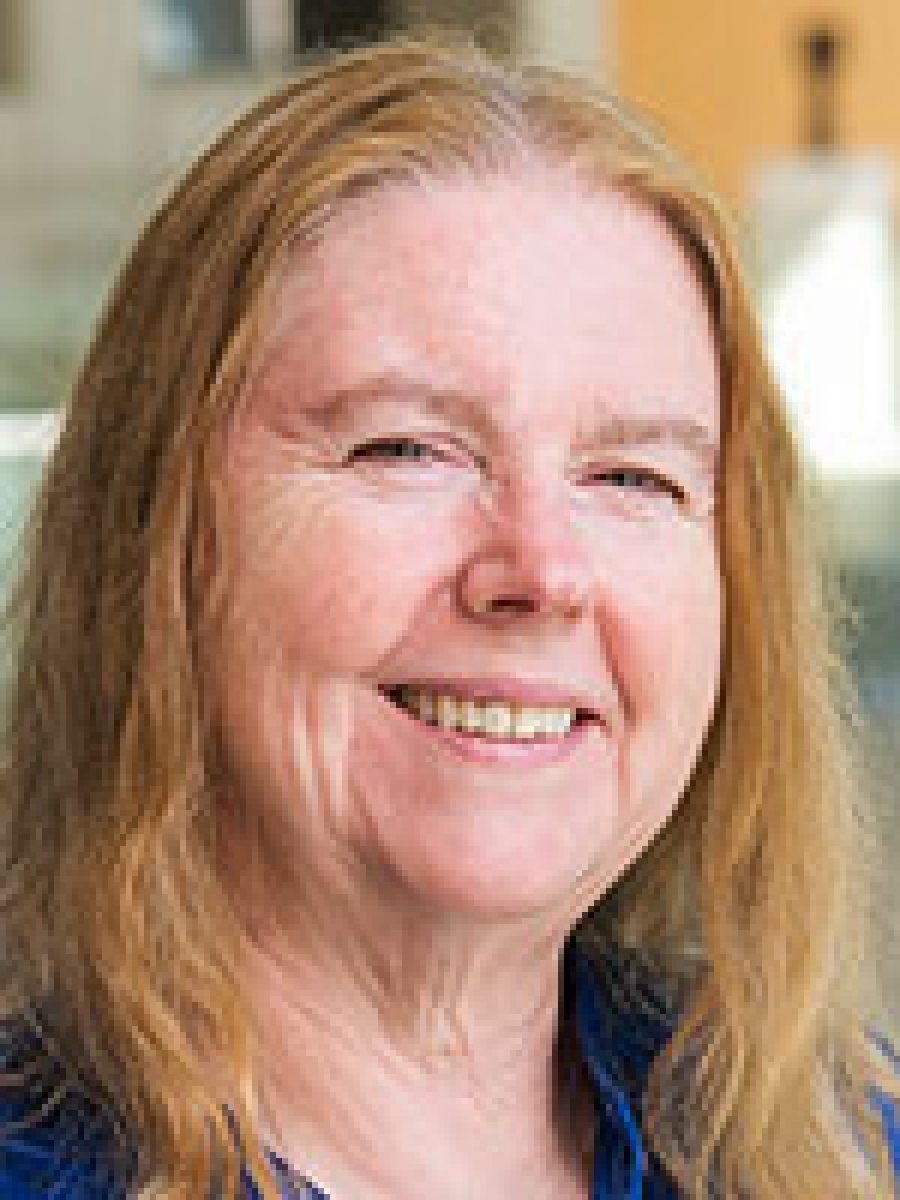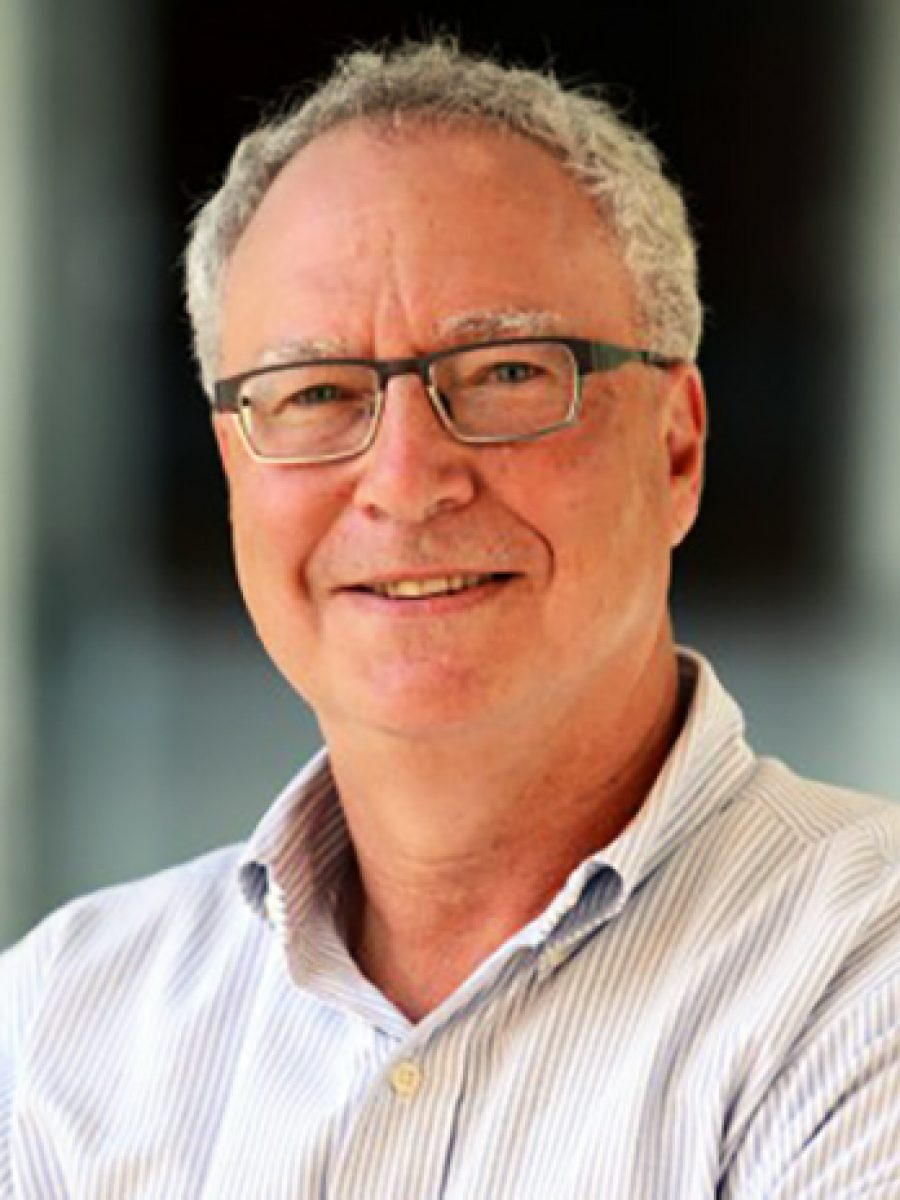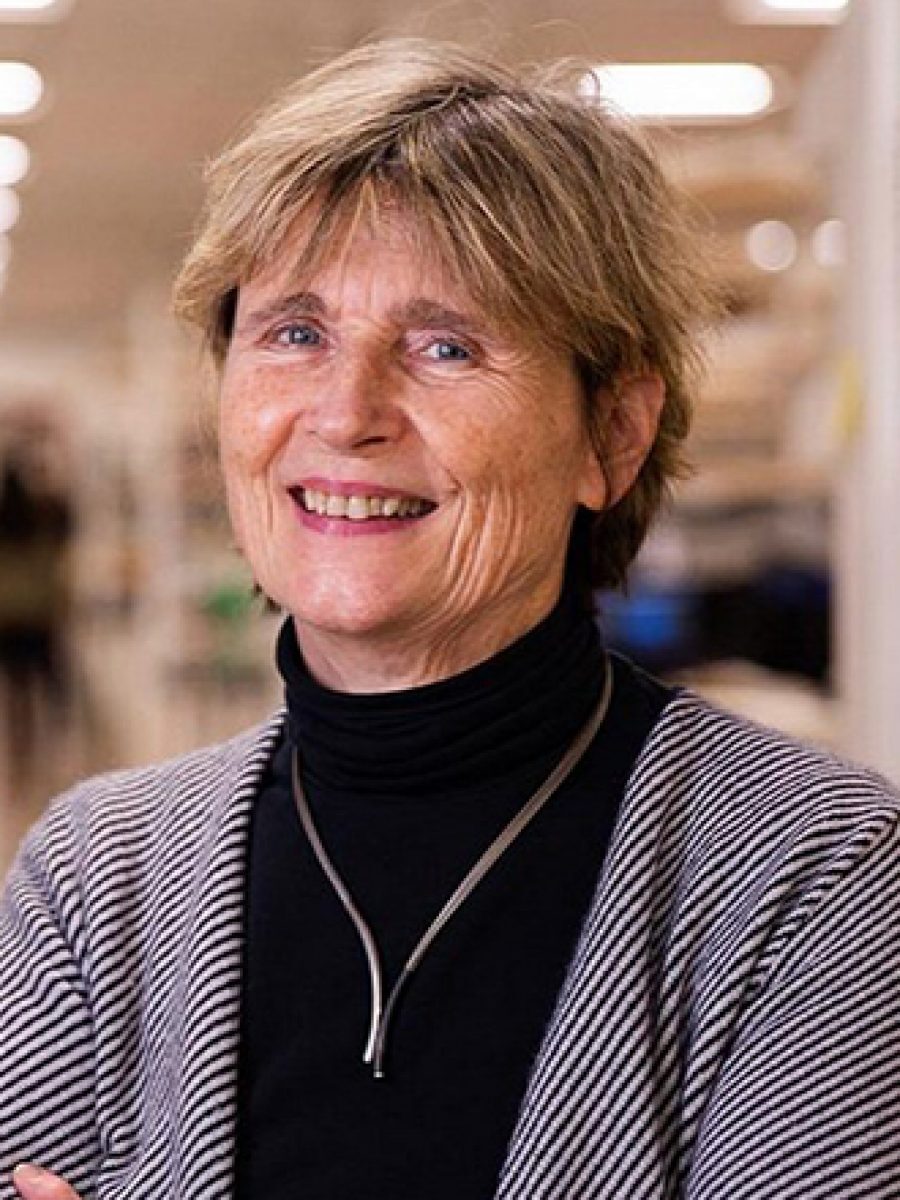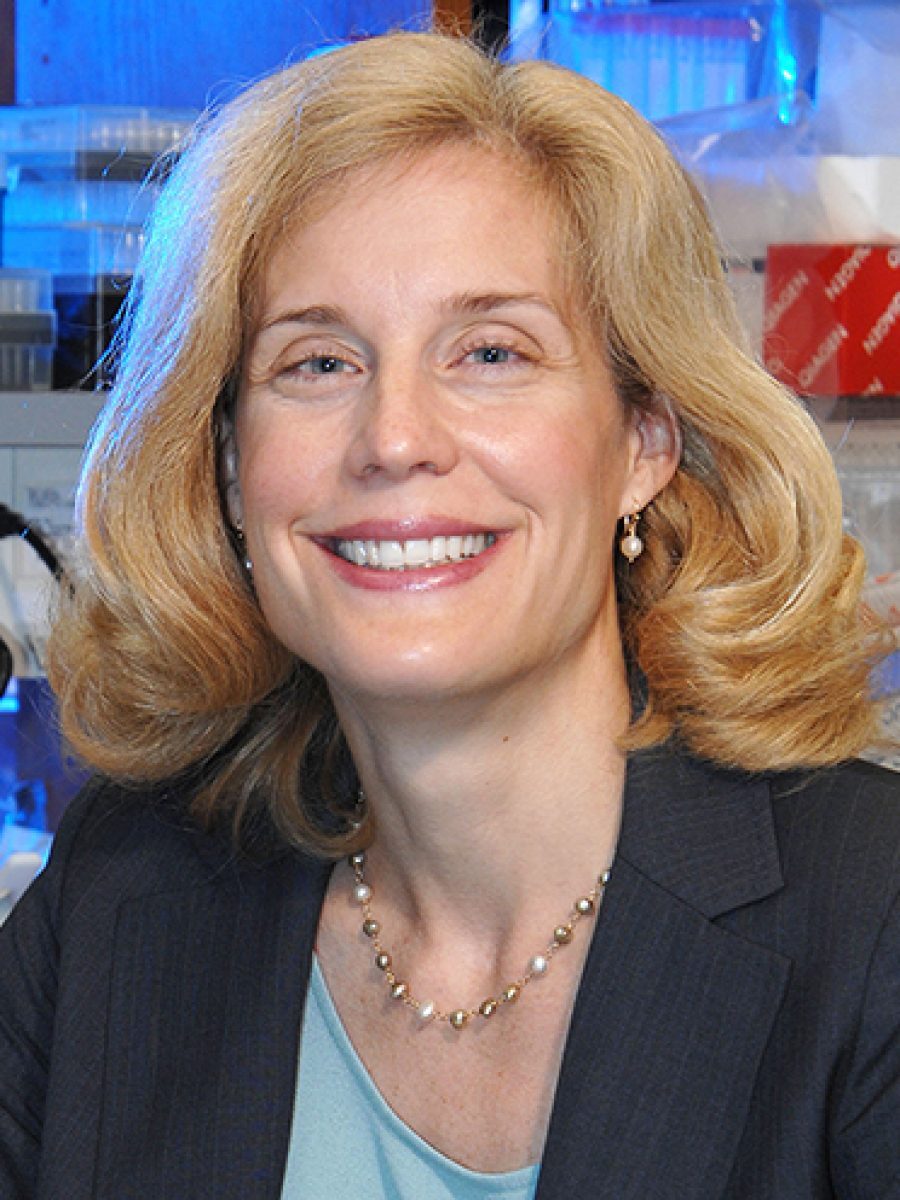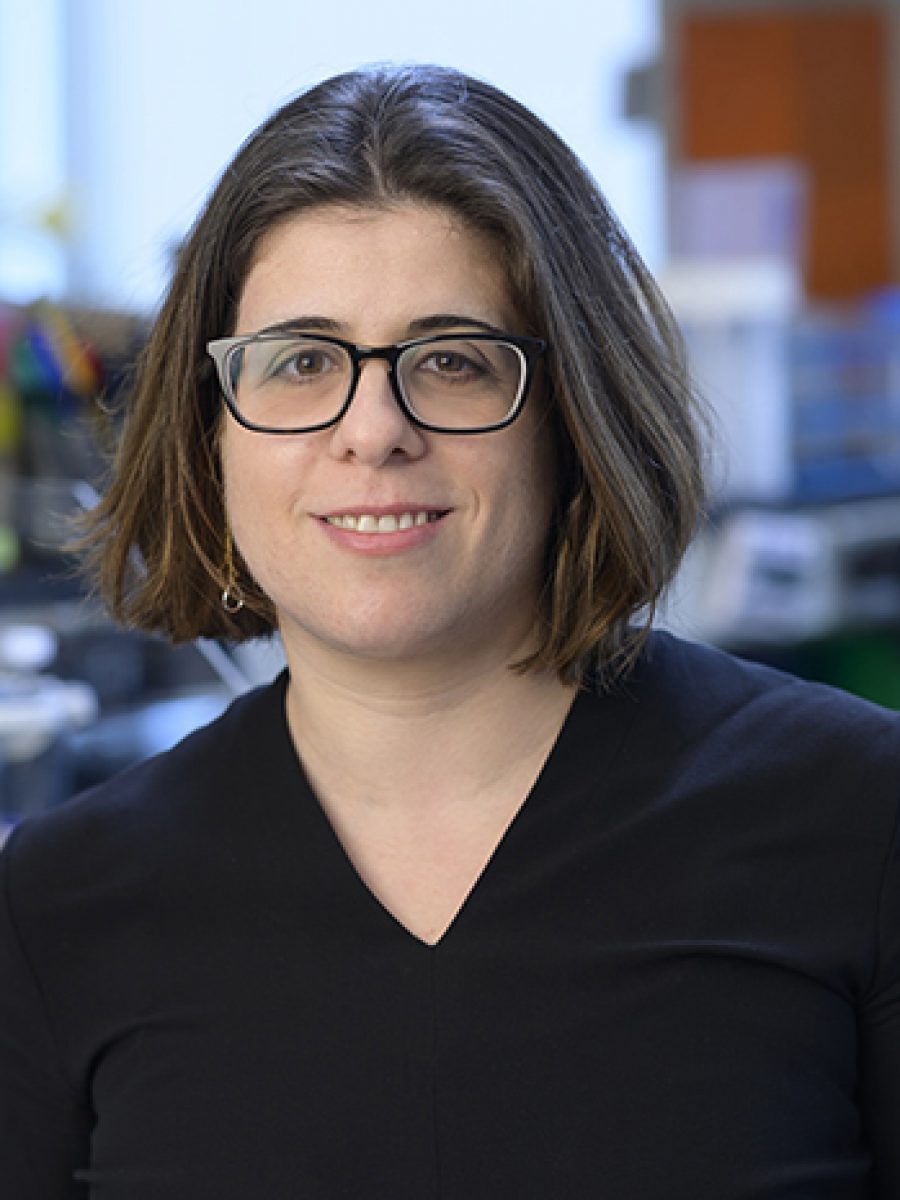Basic Sciences External Advisory Council (BSEAC)
This advisory council helps formulate strategy for School of Medicine Basic Sciences.
BSEAC Members
-
Michael Marletta, University of California, Berkeley (Council Chair)
Michael Marletta is the Professor of Chemistry, Professor of Molecular and Cell Biology, and CH and Annie Li Chair in the Molecular Biology of Diseases at the University of California, Berkeley College of Chemistry. He received his at the University of California, San Francisco in 1978 and served as an NIH Postdoctoral Fellow in the M.I.T. Department of Chemistry from 1978-80.The Marletta lab has had a long-standing interest in nitric oxide (NO) function in biology. We have brought chemical thinking to bear on how a reactive and toxic molecule like NO functions selectively in biological responses such as blood vessel dilation, central nervous system signaling and signaling in prokaryotes. We have uncovered many aspects of NO function including key elements of the enzyme nitric oxide synthase and the receptor for NO, the soluble isoform of guanylate cyclase (sGC). Our continued studies on NO signaling have led to a more general molecular understanding of gas sensing mechanisms in biology.Molecular questions on how the heme in sGC is able to capture NO in competition with the much more abundant oxygen led to the discovery of a novel family of prokaryotic and eukaryotic hemoprotein sensor proteins that have been termed H-NOX proteins (Heme-Nitric oxide OXygen). Some bacterial H-NOXs have ligand properties identical to sGC and some form stable complexes with oxygen, CO and NO. With John Kuriyan, H-NOX structures were solved that led to the key molecular determinants for ligand discrimination against oxygen. Since then we have solved many more structures, including recent electron microscopy views of nitric oxide synthase and sGC. The ability to link structure to ligand specificity has allowed us to discover novel sGCs regulated by oxygen, oxygen sensing in C. elegans, decipher an NO-dependent two-component signaling pathway in prokaryotes involved in biofilm formation, and other aspects of H-NOX function in biology. H-NOX signaling in pathogens such as Vibrio cholerae is a current focus of study.The lab has recently investigated cellulose degradation with the hope of getting past a long-standing bottleneck in producing biofuels from feedstock. We assumed organisms that efficiently degrade cellulose such as the fungus Neurospora, must have an enzyme repertoire beyond those that utilize hydrolytic general acid and base catalysis. Using transcriptomics, knockouts, and quantitative proteomics, we discovered a new class of copper-dependent hydroxylases, termed polysaccharide monooxygenases (PMOs), which play a significant role in cellulose degradation. Structure and function relationships are currently under study. In addition, PMOs have been found in fungal and bacterial pathogens as well as some thought to be involved in development. Study of these novel PMOs is underway.Dr. Marletta is a Member, Institute of Medicine, Fellow, American Academy of Arts and Sciences,
Member, National Academy of Sciences, Fellow, Royal Society of Chemistry, and Fellow, National Academy of Inventors.Marletta Lab -
Madan Babu, St. Jude Children's Research Hospital
Chief Data Scientist and Senior Vice President for Data Science; Director, Center of Excellence for Data Driven Discovery; George J. Pedersen Endowed Chair in Biological Data Sciences
Understanding the molecular basis of life requires a deep knowledge of genes and proteins that make up all organisms. My group is interested in data science approaches to make biological discoveries and reveal fundamental principles of biological systems. We employ and develop computational and experimental methods to study biological systems at different scales of complexity: from systems at the atomic level (e.g., structures) to the network of interactions between molecules (e.g., protein interaction networks) and those pertaining to the level of an entire population (e.g., variation in the human population and cancer genomes). We envision that our findings will help to better understand how mutations cause diseases such as cancer, and that the knowledge can be used in biotechnology, drug discovery, and personalized medicine. Some of the key research areas of interest include:GPCR Signaling, Regulation and PharmacologyIntrinsically Disordered Proteins in Biology and DiseaseGene Expression, Gene Regulation, Protein Degradation and Protein HomeostasisMethods for Biological Data Science, Systems Biology and Network BiologyComputational Biology and Structural BioinformaticsDrug Discovery and ChemoinformaticsHuman Genetics, Population Genetics and Cancer GenomicsBabu Lab
-
Axel Brunger, Stanford University
Axel Brunger received his Physics Diploma at the University of Hamburg in 1980, and his Ph.D. degree from the Technical University of Munich in 1982 working with Klaus Schulten. Subsequently, he was a postdoctoral associate with Martin Karplus in the Department of Chemistry, Harvard University. In 1987, he joined the faculty in the Department of Molecular Biophysics and Biochemistry at Yale University. In 2000, he moved to Stanford University where he is Professor of Molecular and Cellular Physiology. He also holds an appointment as Investigator in the Howard Hughes Medical Institute. In 1995, he was awarded the Röntgen Prize for Biosciences from the University of Würzburg. In 2003, he received the Gregori Aminoff Award of the Royal Swedish Academy. In 2005, he was elected member of the National Academy of Sciences. In 2011, he received the DeLano Award of the American Society for Biochemistry and Molecular Biology, and in 2014, he received both the Bernard Katz Award of the Biophysical Society and the Carl Hermann Medal of the German Crystallographic Society. In 2016, he received the Trueblood Award of the American Crystallographic Association. In 2021, he was elected member of the American Academy of Arts & Sciences.Brunger developed computational tools that enabled determination of difficult X-ray crystal structures. Among his innovations that have become standards in the field are simulated annealing refinement, a method to overcome local minima, and the free R value, an objective measure of a model's quality. More recently, Brunger uncovered the molecular mechanisms of neurotransmitter release when synaptic vesicles fuse with active zones of presynaptic neurons. To capture and study the protein machinery at work, he determined three-dimensional structures ranging from atomic to cellular resolutions and then reconstituted these machines with biophysical assays.Brunger Lab
-
Melanie Cobb, UT Southwestern Medical Center
Jane and Bill Browning Jr. Chair in Medical Science
Melanie Cobb received her undergraduate degree in biochemistry from the University of Chicago and her PhD in biological chemistry from Washington University in St. Louis in the laboratory of Garland Marshall. Following postdoctoral work with Ora Rosen at the Albert Einstein College of Medicine in New York, she joined the Department of Pharmacology at UT Southwestern Medical Center in Dallas where she is currently a Professor and the holder of the Jane and Bill Browning, Jr Chair in Medical Science. Her interests are in cellular regulatory mechanisms.We study how cells sense and respond to hormones, nutrients, stress and developmental signals in their environment to elucidate regulatory mechanisms with a focus on protein kinase signaling pathways as the targets of these cell stimuli. We are interested in the functions of ERK1/2 MAP kinases in nutrient-sensing pathways, notably in pancreatic beta cells and many cancers, particularly nonsmall cell lung cancer and small cell lung cancer (SCLC). ERK1/2 interfere with survival of SCLC and we are investigating the molecular mechanisms. In studying insulin gene transcription, we determined that ERK1/2 and other regulatory components of the ERK cascade, including the activating MAP2Ks and the phosphatase calcineurin, bind to the insulin gene promoter enabling transcriptional regulation by phosphorylation/dephosphorylation to occur routinely on chromatin. Among other kinase targets, we are investigating mechanisms of action of WNKs, the only protein kinases in the eukaryotic kinase superfamily with a unique position of the catalytic lysine. Altered expression of WNK1 is the cause of Gordon's syndrome, a rare form of hypertension, and also hereditary and sensory neuropathy type 2. WNK1 forms a complex with the protein kinases OSR1 and SPAK (STK39) and we have identified several ion channels and other proteins regulated by this pathway. Their additional actions on trafficking, the cytoskeleton, and migration in endothelial cells begin to build a picture of the breadth of their functions.Cobb Lab
-
Mitchell Lazar, Perelman School of Medicine, University of Pennsylvania
Willard and Rhoda Ware Professor in Diabetes and Metabolic Diseases
Mitchell Lazar is the Willard and Rhoda Ware Professor in Diabetes and Metabolic Diseases, the Chief of the Division of Endocrinology, Diabetes, and Metabolism, and the Director of the Institute for Diabetes, Obesity, and Metabolism at the University of Pennsylvania. He received his undergraduate degree in Chemistry from the Massachusetts Institute of Technology, then received a PhD in Neurosciences and an MD from Stanford University. He trained in Internal Medicine at Brigham and Women's Hospital and in Endocrinology at the Massachusetts General Hospital before joining the University of Pennsylvania faculty in 1989.Dr. Lazar discovered the circadian nuclear receptor Rev-erbα, as well as its heme ligand, transcriptional repression, and interactions with corepressors and histone deacetylases. His work has demonstrated the fundamental importance of Rev-erb and its corepressor complex in the physiology of circadian rhythms and organismal metabolism. Dr. Lazar also discovered that another nuclear receptor, PPARγ, is predominantly expressed in adipocytes and also pioneered the linkage of PPARγ to adipocyte differentiation, insulin resistance, and type 2 diabetes. He also led the way to a genome-wide understanding of PPARγ function, and discovered resistin as a novel adipocyte hormone that impairs insulin action and as the first member of a previously unknown family of secreted resistin-like molecules.He has given named lectures throughout the world, and has served as a member of the Board of Scientific Councilors of the NIDDK as well as many editorial and scientific advisory boards. He has been elected to the American Society for Clinical Investigation and the Association of American Physicians, and received two NIH Merit Awards, the Van Meter Award of the American Thyroid Association, the BMS Freedom to Discover Award, the Richard Weitzman Award, Edwin B. Astwood Lecture Award and Gerald D. Aurbach Lecture Award from The Endocrine Society, and the Stanley Korsmeyer Award of the American Society for Clinical Investigation. In 2019, Mitch received Rolf Luft Award for his pioneering work in transcriptional regulation of metabolism. He is also an elected member of the National Academy of Medicine, the American Academy of Arts and Sciences, and the National Academy of Sciences.Lazar Lab
-
Ruth Lehmann, MIT Whitehead Institute for Biomedical Research
Professor of Biology; Director, Whitehead Institute
Ruth Lehmann is president and director of the Whitehead Institute and professor of biology at MIT. Lehmann earned her undergraduate degree and a PhD in biology with Christiane Nüsslein-Volhard from the University of Tübingen, in her home country of Germany. She has conducted research at the University of Washington, the University of Freiburg, the Max Planck Institute for Developmental Biology and the Medical Research Council Laboratory of Molecular Biology in Cambridge, England, She was a Member of the Whitehead Institute Member and on the faculty of MIT from 1988-1996. She then moved to New York University (NYU), where she served in a number of leadership roles specifcially as the Laura and Isaac Perlmutter Professor of Cell Biology and director of the Skirball Institute of Biomolecular Medicine (2006-2020) and from 2014-2020 as the Chair of the Department of Cell Biology at NYU's Grossman School of Medicine. She also became an investigator with the Howard Hughes Medical Institute in 1990 and again in 1997.Research in her laboratory focuses on reproductive biology. Germ cells, the cells that mature into egg and sperm are the only cells in the body with the potential to naturally generate a completely new organism. The lab has made important discoveries in understanding how germ cells are specified in the early embryo, migrate by lipid guidance and how they maintain the potential for totipotency while differentiating into egg and sperm in the adult. Most recently her lab used super-resolution imaging to determine a new principle by which RNAs self-sort within phase transitioned germ granules and identified mechanisms by which mitochondria are sequestered to germ cells and selected for quality during germline development.Dr. Lehmann is a member of the American Academy of Arts Sciences (1998) and the National Academy of Sciences (2005), Associate (foreign) Member of EMBO (2012). She was awarded the Conklin Medal of the Society of Developmental Biology, was the inaugural recipient of the Klaus Sander Preiss of the German Society for Developmental and received the Keith Porter Award from the American Society of Cell Biology. Dr. Lehmann has been the President of the Society for Developmental Biology and will serve as President of the American Society for Cell Biology in 2021. She has served on the PEW Scholars and LSRF advisory boards and is editor in chief of the Annual Review of Cell and Developmental Biology.Lehmann Lab
-
Larry Marnett, Vanderbilt University
Dean Emeritus, Basic Sciences, Vanderbilt University School of Medicine; University Distinguished Professor; Mary Geddes Stahlman Professor of Cancer Research; University Professor of Biochemistry and Chemistry; Professor of Pharmacology
Lawrence J. Marnett is Dean Emeritus of the School of Medicine Basic Sciences of Vanderbilt University. He is also University Distinguished Professor, Mary Geddes Stahlman Professor of Cancer Research, and Professor of Biochemistry, Chemistry, and Pharmacology. Marnett received his Ph.D. in Chemistry from Duke University and did postdoctoral work at the Karolinska Institute and Wayne State University. He began his academic career at Wayne State University where he rose through the ranks to Professor of Chemistry. In 1989, he moved to Vanderbilt. Marnett served as the first Associate Director of Basic Research of the Vanderbilt Ingram Cancer Center, Director of the Vanderbilt Institute of Chemical Biology and Associate Vice-Chancellor for Research of the Vanderbilt University School of Medicine. He was named founding Dean of Basic Sciences in 2016.Marnett's research program focuses on the role of the enzyme cyclooxygenase-2 in cancer and inflammation as well as on the role of lipid oxidation products in DNA damage and mutation. His group has used structure-based approaches in conjunction with medicinal chemistry to design selective cyclooxygenase-2 inhibitors as potential anti-inflammatory, cancer preventive, and imaging agents. He is the author of over 500 research publications and 16 patents. Included in the awards Marnett has received are an American Cancer Society Faculty Research Award, the Sigma Xi Research Award, an Outstanding Investigator Award and a MERIT Award from the National Cancer Institute, the Founders Award from the American Chemical Society Division of Chemical Toxicology, and the George and Christine Sosnovsky Award for Cancer Research from the American Chemical Society. He is a Fellow of the American Association for the Advancement of Science and a Fellow of the American Chemical Society.Marnett Lab
-
Jennifer Pietenpol, Vanderbilt University Medical Center
Chief Scientific and Strategy Officer, VUMC; Executive Vice President for Research, VUMC; Brock Family Directorship in Career Development; Ingram Professor of Cancer Research; Professor of Biochemistry and Otolaryngology
Jennifer Pietenpol earned her doctorate in cell biology at Vanderbilt University School of Medicine in 1990. She continued her postgraduate training at Johns Hopkins Oncology Center (now Sidney Kimmel Comprehensive Cancer Center) before returning in 1995 to Vanderbilt, where she became a professor in 2002. She leads a research program focused on triple-negative breast cancer and the p53 family-signaling network. She has integrated her research expertise in tumor suppressor genes and molecular genetics to molecularly subtype difficult-to-treat, triple-negative breast cancer. This work has been cited over 4,000 times since 2011, and the pre-clinical results continue to be translated to clinical trials. Her research has impacted many areas of science and medicine, and she has brought her discoveries to clinical impact for breast cancer patients. Her lab also discovered that one of the p53 family members, p73, is required for multiciliogenesis. Loss of p73 and ciliary biogenesis can lead to deficits in the nervous system, sterility, and chronic inflammation and infection. These findings provide insights to the study of several human inflammatory diseases.Professor Pietenpol also translates science discoveries to human health through her leadership roles, including her positions as Executive Vice President for Research at Vanderbilt University Medical Center, Director of the Vanderbilt-Ingram Cancer Center, Chief Scientific Advisor for the Susan G. Komen Foundation, and past member of the National Cancer Policy Forum and American Association for Cancer Research Board of Directors. In 2008, President Bush appointed Pietenpol to a six-year term on the National Cancer Advisory Board. Dr. Pietenpol also served as a member of the Blue Ribbon Panel, advising the former Vice President Biden's National Cancer Moonshot. She has received numerous awards, including the Burroughs Wellcome New Investigator Award in Toxicology, the Carleton College Distinguished Alumni Achievement Award, the T. J. Martell Medical Research Advancement Award, and the Charles R. Park Award for fundamental research into the pathophysiology of cancer. She was inducted into the Johns Hopkins Society of Scholars and was elected as a fellow of the American Association for the Advancement of Science. During her tenure at Vanderbilt University, she has trained more than sixty undergraduates, graduate students, and postdoctoral and clinical fellows, and directly mentored more than twenty-five early-career faculty members.Pietenpol Lab
-
Michael Rapé, University of California, Berkeley
Professor; HHMI Investigator; Dr. K. Peter Hirth Chair of Cancer Biology
Michael Rapé received his PhD at the Max-Planck Institute of Biochemistry in Germany, before he joined Marc Kirschner's lab at Harvard Medical School for his postdoctoral studies. In 2006, Michael joined the Department of Molecular and Cell Biology at the University of California at Berkeley, where he is currently Head of the Division of Molecular Therapeutics and the Dr. K. Peter Hirth Chair of Cancer Biology. Michael is also an Investigator of the Howard Hughes Medical Institute.Michael's lab uncovers molecular mechanisms of cell fate determination, using posttranslational modification with ubiquitin as their starting point. This work revealed new ubiquitin chain types, essential ubiquitylation enzymes and substrates, as well as mechanisms of ubiquitylation that are essential for human development and disease. His work has been recognized with a Pew Scholar's Award, the Vilcek Prize for Creative Promise, the National Blavatnik Award, and an NIH Director's New Innovator Award. Michael has recently become an elected foreign member of EMBO.His work led to the first prospective development of a molecular glues targeting E3 ligases, which helped in opening up the ubiquitin system for drug discovery. To advance ubiquitin-focused approaches in drug discovery, Michael co-founded Nurix Therapeutics, Zenith Therapeutics, and Lyterian Therapeutics. Michael is also an iPartner at The Column Group Ventures.Rapé Lab
-
Agnel Sfeir, Memorial Sloan Kettering Cancer Center
PaineWebber Chair in Cancer Genetics
Agnel Sfeir was born in Beirut, Lebanon. She completed her undergraduate studies at the American University of Beirut. In 2001, she relocated to the United States and pursued her Ph.D. at UT Southwestern under the guidance of Professors Jerry Shay and Woodring Wright. Upon completing her PhD., Dr Sfeir joined the lab of Professor Titia de Lange at the Rockefeller University as a post-doctoral fellow. In the de Lange lab, Dr. Sfeir focused on understanding how mammalian cells protect chromosome ends from the perils of the DNA damage response. In 2012, Dr. Sfeir launched her independent laboratory at the Skirball Institute of Biomolecular Medicine at NYU School of Medicine, where she continued to focus on the intersection of telomeres and the DNA damage response. There, she identified polymerase theta that promotes error-prone DNA repair and uncovered an essential function for this enzyme in tumors with mutations in the BRCA genes. In addition, Agnel launched a new line of research, studying mitochondrial DNA replication and repair. Her lab identified that breaks in mitochondrial DNA trigger a nuclear response and activate innate immunity. De. Sfeir joined the Sloan Kettering Institute (SKI) in March 2021 as a Professor and Member of the Molecular Biology Program. She also holds the PaineWebber Chair in Cancer Genetics. At SKI, the Sfeir lab focuses on the mito-nuclear crosstalk, investigating how mitochondrial and nuclear genomes co-evolve, adapt, and communicate to ensure cellular homeostasis.Dr. Sfeir received numerous awards, including the David and Lucille Packard Foundation Award, the Damon Runyon-Rachleff Innovator Award, Pew-Stewart Scholars for Cancer Research award, Pershing Square Sohn Prize for Young Investigators, and the NIH Director's New Innovator award. Dr. Sfeir co-founded Repare Therapeutics ($RPTX), a clinical-stage precision oncology company focusing on synthetic lethality in DNA damage.Sfeir Lab
-
Jin Zhang, University of California, San Diego
Professor, Pharmacology
Jin Zhang received her PhD in Chemistry from University of Chicago in 2000. After completing her postdoctoral work in the laboratory of Roger Tsien at UC San Diego, she joined the faculty of Johns Hopkins University School of Medicine in 2003. She was promoted to Professor of Pharmacology in 2013. In 2015 she moved back to UC San Diego and is currently Professor and vice Chair in Department of Pharmacology. Research in her lab focuses on developing enabling technologies to probe the active molecules in their native environment and characterizing how these active molecules change in diseases including cancer.Dr Zhang is a recipient of the Biophysical Society Margaret Oakley Dayhoff Award (2009), NIH Director's Pioneer Award (2009), John J. Abel Award in Pharmacology (2012), Pfizer Award in Enzyme Chemistry (2012), NCI Outstanding Investigator Award (2015 and 2022), Robert R. Ruffolo Career Achievement Award in Pharmacology (2022), Protein Society Christian B. Anfinsen Award (2022) and Biophysical Society Carolyn Cohen Innovation Award from (2023). She was elected as a Fellow of the American Association for the Advancement of Science in 2014, a Fellow of the American Institute for Medical and Biological Engineering in 2019 and a Fellow of American Society for Pharmacology and Experimental Therapeutics in 2021. Dr. Zhang also received UC San Diego Chancellor's Award for Excellence in Postdoctoral Scholar Mentoring in 2019 and UC San Diego Jacobs School of Engineering Outstanding Graduate Student Mentoring Award in 2022.Zang Lab

